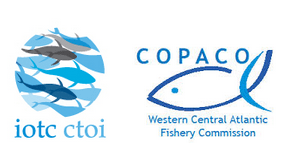 11 July 2016: Regional fisheries management organizations (RFMOs) and regional fisheries commissions have taken steps to promote fisheries management and conservation in their regions. Actions include a decision by the Indian Ocean Tuna Commission (IOTC) to implement a precautionary approach towards skipjack tuna and an agreement by the Western Central Atlantic Fishery Commission (WECAFC) to launch a process to establish a RFMO.
11 July 2016: Regional fisheries management organizations (RFMOs) and regional fisheries commissions have taken steps to promote fisheries management and conservation in their regions. Actions include a decision by the Indian Ocean Tuna Commission (IOTC) to implement a precautionary approach towards skipjack tuna and an agreement by the Western Central Atlantic Fishery Commission (WECAFC) to launch a process to establish a RFMO.
At the IOTC’s 20th session, which convened from 23-27 May in La Réunion, France, Kenya, the Maldives, Mauritius, Mozambique and Tanzania submitted the proposal for harvest control rules (HCR) for skipjack tuna in the IOTC Area of Competence. The HCRs aim to ensure the long-term sustainability of the Indian Ocean skipjack tuna fishery at levels not less than those capable of producing maximum sustainable yield (MSY). In the proposal, the proponents underscore the importance of shared tuna resources for their economies, communities and cultures and their role in providing jobs, food and development opportunities for present and future generations.
The IOTC HCR calls for conducting a stock assessment every three years, with the next stock assessment planned for 2017 and outlines values for setting a total annual catch limit based on the stock assessment. This approach allows the IOTC to implement variable catch limits depending on the status of the skipjack tuna population, which is expected to facilitate a quick and consistent management response and to promote the species’ sustainable utilization. This approach will further promote transparency and a risk-management based strategy to managing tuna fisheries, according to the Common Oceans Areas Beyond National Jurisdiction (ABNJ) Tuna Project, which has supported the IOTC in the process of adopting this strategy.
At its 16th biennial session, the WECAFC agreed to launch a process to establish a RFMO in its areas of competence and to collaborate in fisheries management and conservation in ABNJ of highly migratory, straddling and deep sea fish stocks not under the mandate of the International Commission for the Conservation of Atlantic Tunas (ICCAT). At its first preparatory meeting, which will take place in 2017, WECAFC will clarify issues related to stocks coverage, competency area, institutional structure and membership and other matters. WECAFC chairperson Lionel Reynal described the agreement as “a major milestone for the region in combating illegal, unreported, and unregulated (IUU) fishing.” He noted that it would bring “a large high sea area under the mandate of an RFMO, securing fisheries conservation and management in the Western Central Atlantic.”
WECAFC’s 16th session, which convened from 20-24 June in Guadeloupe, agreed on a number of other decisions and recommendations, including on the management of groundfish and shrimp and the use of marine protected areas (MPAs) as fisheries management tools. The Commission adopted the Regional Plan for Queen Conch Management and Conservation, a sub-regional Fisheries management plan for flyingfish in the Eastern Caribbean, and region-specific management measures for spiny lobster. The Commission assigned the status of Vulnerable Marine Ecosystem (VME) to seamounts in the deep sea of WECAFC’s high seas mandate area, including the Corner seamounts, New England Seamounts, Wyoming Seamounts and Congress and Lynch Seamounts, a total area that is comparable to Guyana. This decision means that the areas are closed for bottom fishing until assessments and surveys of the fisheries are carried out. The Commission also expressed concern about IUU fishing for sea cucumber, noting a rapid depletion of sea cucumber stocks and urging members to ban sea cucumber harvesting.
IOTC is an intergovernmental organization responsible for the management of tuna and tuna-like species in the Indian Ocean. WECAFC is a regional fishery advisory body with 33 countries and the EU as members that cooperates on fisheries management and development in the Wider Caribbean Region. [Common Oceans Press Release, 11 July] [Common Oceans Press Release, 16 June] [IOTC Website] [IOTC Meeting Website] [WECAFC Website] [WECAFC Meeting Website]